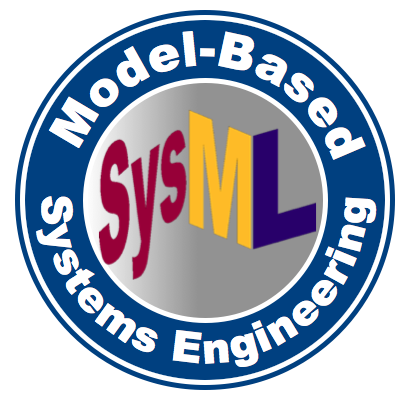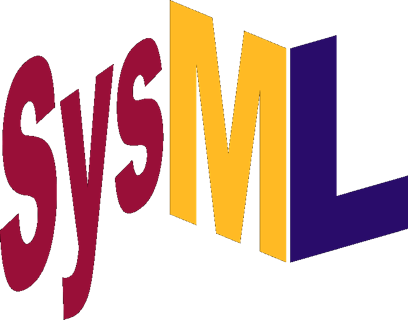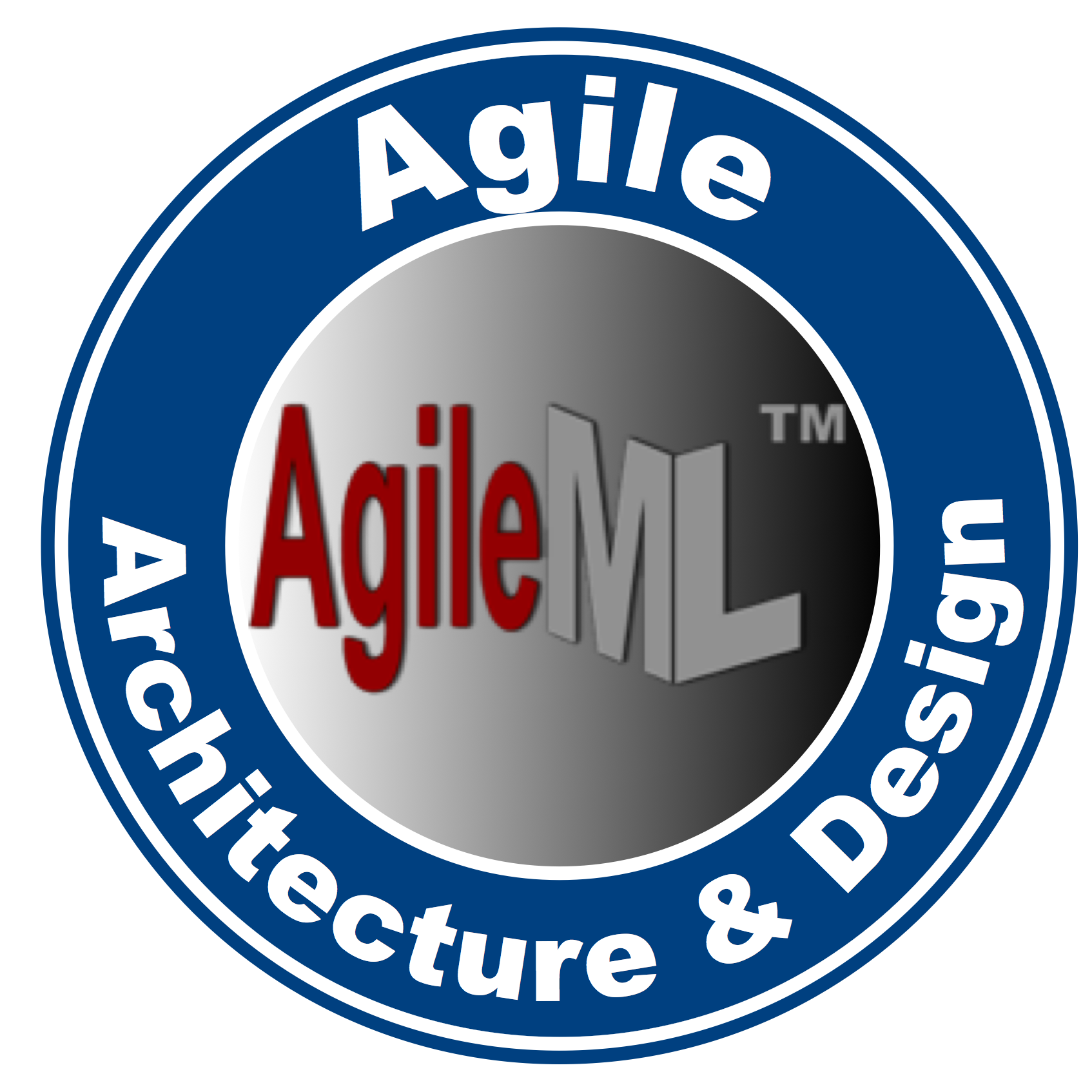Essential MBSE + SysML Applied™: Tool-Independent edition
COURSE ID: WS-MBSE-E-TI
DESCRIPTION: This introductory MBSE + SysML workshop provides students with a solid foundation for applying Model-Based Systems Engineering (MBSE) principles and best practices with the Systems Modeling Language (SysML). SysML is the de facto industry-standard architecture modeling language for MBSE applications. The workshop teaches students how to solve practical problems using all SysML diagram types and Allocation Tables.
This MBSE + SysML workshop edition is tool-independent, and teaches the SysML modeling language using whiteboards for hands-on practice sessions, without using any tool-specific techniques. Students who seek integrated modeling tool training may also choose versions of this workshop that are customized for popular SysML modeling tools (MagicDraw/Cameo, Sparx EA, Rhapsody; others available upon request).
DESCRIPTION: This introductory MBSE + SysML workshop provides students with a solid foundation for applying Model-Based Systems Engineering (MBSE) principles and best practices with the Systems Modeling Language (SysML). SysML is the de facto industry-standard architecture modeling language for MBSE applications. The workshop teaches students how to solve practical problems using all SysML diagram types and Allocation Tables.
This MBSE + SysML workshop edition is tool-independent, and teaches the SysML modeling language using whiteboards for hands-on practice sessions, without using any tool-specific techniques. Students who seek integrated modeling tool training may also choose versions of this workshop that are customized for popular SysML modeling tools (MagicDraw/Cameo, Sparx EA, Rhapsody; others available upon request).
TRAINING VENUES: All PivotPoint training workshops can be delivered via:
- Live Expert VIRTUAL TRAINING (Online) — primary delivery venue (most cost-effective & convenient)
[Highly-intensive, personally-interactive, hands-on training w/ frequent Q&A and screen sharing betw/ Instructor & students. Delivered online via a secure webcon + videcon facility.]; - Live Expert ONSITE TRAINING @ CLIENT FACILITY
[Delivered onsite at Client's physical facility; currently only available during non-flu season (Mar-Oct); includes FFP T&E surcharge as per IRS per diem rates; requires 60-day 100% advanced pay.]
DURATION: 4-5 days (= 28-35 training hours; length depends upon optional learning modules selected)
AUDIENCE: Systems engineers, system architects, software architects/engineers/developers/scientists, project managers, and others who want to learn how the MBSE + SysML can improve how they architect, analyze, design, and manage complex systems will benefit from this workshop.
PREREQUISITES: Systems engineering, software engineering or other STEM (Science Technology Engineering Math) experience building large, complex systems-of-systems. Strong computer skills and desire to learn. No other experience or prior training is required.
PREREQUISITES: Systems engineering, software engineering or other STEM (Science Technology Engineering Math) experience building large, complex systems-of-systems. Strong computer skills and desire to learn. No other experience or prior training is required.
LEARNING OBJECTIVES
• What is Model-Based Systems Engineering (MBSE) and how does SysML enable it?
• SysML’s basic and advanced constructs for modeling requirements, structure, and behavior (all nine SysML diagrams + Allocation Tables)
• How SysML can specify large, complex system architectures and the full System Development Life Cycle (SDLC)
• How to trace Requirements and perform Verification & Validation (V&V) on a SysML model
• Practical guidelines for specifying correct, complete, clear, concise, and consistent models
• How you can customize SysML for specific domains, such as aerospace-defense, manufacturing, and communications
• How SysML work artifacts can be used with MBSE processes
• How to select SysML tools and methods
• OPTIONAL: How to draw SysML diagrams, simulate/execute SysML diagrams, and generate reports using a selected SysML tool [For a list of SysML workshops customized for popular SysML tools, check out the Architecture Modeling Tool Training section.]
• How to plan your transition to a MBSE approach
• How to learn more about MBSE and SysML modeling
• What is Model-Based Systems Engineering (MBSE) and how does SysML enable it?
• SysML’s basic and advanced constructs for modeling requirements, structure, and behavior (all nine SysML diagrams + Allocation Tables)
• How SysML can specify large, complex system architectures and the full System Development Life Cycle (SDLC)
• How to trace Requirements and perform Verification & Validation (V&V) on a SysML model
• Practical guidelines for specifying correct, complete, clear, concise, and consistent models
• How you can customize SysML for specific domains, such as aerospace-defense, manufacturing, and communications
• How SysML work artifacts can be used with MBSE processes
• How to select SysML tools and methods
• OPTIONAL: How to draw SysML diagrams, simulate/execute SysML diagrams, and generate reports using a selected SysML tool [For a list of SysML workshops customized for popular SysML tools, check out the Architecture Modeling Tool Training section.]
• How to plan your transition to a MBSE approach
• How to learn more about MBSE and SysML modeling
AGILE MBSE EXPERT INSTRUCTORS: All PivotPoint Agile MBSE Live Virtual Training training workshops are taught by Agile MBSE Experts with 10+ years practical application experience using leading SysML Modeling & Simulation (ModSim) tools (Cameo/MagicDraw, Sparx EA, etc.). All Agile MBSE Expert Instructors have been certified as such by PivotPoint's Founder & Chief Instructor (see below), and are passionate about the technical subjects they teach.
COURSE AUTHOR & CHIEF INSTRUCTOR: Cris Kobryn is the Founder of PivotPoint Technology and is an internationally-recognized expert in system architecture modeling languages (SysML, UML, BPMN, ArchiMate), enterprise architecture frameworks (DoDAF, UPDM, TOGAF), and Model-Based Systems Engineering (MBSE) tools. Cris led the original SysML (Systems Modeling Language) open source project, for which he received the INCOSE Outstanding Service Award in 2006. Cris has been architecting and designing distributed computer systems for three decades, and is known for successfully leading the UML 1.x, UML 2.0, and SysML international standardization teams. Recently, he designed the CyberML™ (Cyber Modeling Language™) to precisely specify Agile enterprise architectures that are scalable and cybersecure. You can learn more about Cris' qualifications as a MBSE and Agile Architecture expert on his corporate bio page...
COURSE SYLLABUS: All Essential MBSE + SysML Applied: Tool-Independent edition workshops must include MBSE + SYSML: OVERVIEW, MBSE + SYSML: BASIC SYSTEM ANALYSIS and MBSE + SYSML: BASIC SYSTEM DESIGN core learning modules. Students can mix-and-match additional optional learning modules as needed, and modules can be tailored to address special team or project requirements. Contact us for details.
MBSE + SYSML: OVERVIEW [Module# MBSE-100]
Intro to Model-Based Systems Engineering
• Systems Eng (SE) —> MBSE —> Agile MBSE Evolution
• MBSE Tetrad (Language, Tool, Framework and Process)
• Agile MBSE SDLC (System Development Life Cycle) Quick Tour
• SysML Quick Tour (9 diagrams + Allocation Tables)
Agile MBSE SDLC Phases Featured
• System Requirements Analysis
SysML Diagram Techniques
• Requirement (REQ), Use Case (UC), Package (PKG), Allocation Tables
Special Topics
• MBSE Requirements Analysis Patterns
• MBSE Requirements Analysis: Architecture QA Guidelines
• MBSE Requirements Analysis: Anti-Patterns to Avoid
Intro to Model-Based Systems Engineering
• Systems Eng (SE) —> MBSE —> Agile MBSE Evolution
• MBSE Tetrad (Language, Tool, Framework and Process)
• Agile MBSE SDLC (System Development Life Cycle) Quick Tour
• SysML Quick Tour (9 diagrams + Allocation Tables)
Agile MBSE SDLC Phases Featured
• System Requirements Analysis
SysML Diagram Techniques
• Requirement (REQ), Use Case (UC), Package (PKG), Allocation Tables
Special Topics
• MBSE Requirements Analysis Patterns
• MBSE Requirements Analysis: Architecture QA Guidelines
• MBSE Requirements Analysis: Anti-Patterns to Avoid
MBSE + SYSML: BASIC SYSTEM ANALYSIS [Module# MBSE-101]
Agile MBSE SDLC Phases Featured
• System Analysis (Functional Analysis)
SysML Diagram Techniques
• MBSE + SYSML: OVERVIEW diagrams + Block Definition (BDD), Activity (ACT), Parametric (PAR)
Special Topics
• MBSE Object Analysis & Domain Analysis Patterns
• Extending Traceability and V&V Patterns
• MBSE System Analysis: Architecture QA Guidelines
• MBSE System Analysis: Anti-Patterns to Avoid
Agile MBSE SDLC Phases Featured
• System Analysis (Functional Analysis)
SysML Diagram Techniques
• MBSE + SYSML: OVERVIEW diagrams + Block Definition (BDD), Activity (ACT), Parametric (PAR)
Special Topics
• MBSE Object Analysis & Domain Analysis Patterns
• Extending Traceability and V&V Patterns
• MBSE System Analysis: Architecture QA Guidelines
• MBSE System Analysis: Anti-Patterns to Avoid
MBSE + SYSML: MODELING TOOL EVAL TECHNIQUES [Module# MBSE-115]
This is a hands-on laboratory for objectively evaluating popular SysML modeling tools using a pragmatic process that can be tailored for your team and project. The default SysML modeling tools used to illustrate the evaluation techniques are: Cameo / MagicDraw + SysML plugin or Sparx Enterprise Architect + SysML plugin. Other SysML modeling tools (e.g., Rational Rhapsody, UModel, Visual Paradigm) may be substituted on request subject to trial license availability.
Topics:
• Specifying SysML modeling tool evaluation objectives and requirements
• Defining SysML modeling tool selection criteria
• Assigning relative weights to SysML modeling tool selection criteria
• Identifying candidate SysML modeling tools
• Testing candidate SysML modeling tools
• Finalizing the best choice for your team and project
Duration: 1 or 2 Day Version [This learning module is available in both a 1-day and a 2-day version, where the length depends upon the number of SysML modeling tools being evaluated (usually between 3-5) and how much guidance the MBSE team needs.]
This is a hands-on laboratory for objectively evaluating popular SysML modeling tools using a pragmatic process that can be tailored for your team and project. The default SysML modeling tools used to illustrate the evaluation techniques are: Cameo / MagicDraw + SysML plugin or Sparx Enterprise Architect + SysML plugin. Other SysML modeling tools (e.g., Rational Rhapsody, UModel, Visual Paradigm) may be substituted on request subject to trial license availability.
Topics:
• Specifying SysML modeling tool evaluation objectives and requirements
• Defining SysML modeling tool selection criteria
• Assigning relative weights to SysML modeling tool selection criteria
• Identifying candidate SysML modeling tools
• Testing candidate SysML modeling tools
• Finalizing the best choice for your team and project
Duration: 1 or 2 Day Version [This learning module is available in both a 1-day and a 2-day version, where the length depends upon the number of SysML modeling tools being evaluated (usually between 3-5) and how much guidance the MBSE team needs.]
MBSE + SYSML: BASIC SYSTEM DESIGN [Module# MBSE-102]
Agile MBSE SDLC Phases Featured
• System Design
SysML Diagram Techniques Featured
• MBSE + SYSML: BASIC SYSTEM ANALYSIS diagrams + Internal Block (IBD), Advanced Parametric (PAR), Sequence (SEQ), State Machine (STM)
Special Topics
• MBSE Interface-Based Design, Component-Based Design & Service-Oriented Architecture Design Patterns
• Extending Traceabilty and V&V Patterns
• MBSE System Design: Architecture QA Guidelines
• MBSE System Design: Anti-Patterns to Avoid
Agile MBSE SDLC Phases Featured
• System Design
SysML Diagram Techniques Featured
• MBSE + SYSML: BASIC SYSTEM ANALYSIS diagrams + Internal Block (IBD), Advanced Parametric (PAR), Sequence (SEQ), State Machine (STM)
Special Topics
• MBSE Interface-Based Design, Component-Based Design & Service-Oriented Architecture Design Patterns
• Extending Traceabilty and V&V Patterns
• MBSE System Design: Architecture QA Guidelines
• MBSE System Design: Anti-Patterns to Avoid
OPTIONAL LEARNING MODULES: May be added if appropriate prerequisites are met. Each optional learning module requires one (1) additional training day.
MBSE + SYSML: PROJECT PRACTICUM [Module# MBSE-120]
The project practicum provides an opportunity to apply MBSE + SysML modeling principles and best practices to solve project modeling problems in a creative and supervised workshop environment. The practicum can be used to facilitate:
• MBSE + SysML model peer reviews
• MBSE + SysML model revisions and extreme makeovers
• Selected advanced MBSE+ SysML modeling tool techniques including, but not limited to, dynamic (behavioral) ModSim (Modeling and Simulation), mathematical (parametric) ModSim, automated document generation, automated code generation (Round-Trip Engineering), etc.
Students can identify project modeling problems in advance, or the Instructor will work with students to identify them.
The project practicum provides an opportunity to apply MBSE + SysML modeling principles and best practices to solve project modeling problems in a creative and supervised workshop environment. The practicum can be used to facilitate:
• MBSE + SysML model peer reviews
• MBSE + SysML model revisions and extreme makeovers
• Selected advanced MBSE+ SysML modeling tool techniques including, but not limited to, dynamic (behavioral) ModSim (Modeling and Simulation), mathematical (parametric) ModSim, automated document generation, automated code generation (Round-Trip Engineering), etc.
Students can identify project modeling problems in advance, or the Instructor will work with students to identify them.
MBSE + AI: OVERVIEW [Module# MBAI-100]
Intro to MBSE + AI
• Foundation: Intro to MBSE & Agile MBSE
[Optional review of MBSE + SYS: OVERVIEW or equivalent]
• Intro to Artificial Intelligence (AI), Machine Learning (ML) & Expert Systems
Topics
• Agile MBSE 6D Enterprise Architecture Framework™ (Agile MBSE 6D EAF™)
• Digital Twin EAF™ support for AI integration
• Hybrid AI System (HAIS) Architecture Patterns: MBSE + GenAI + KBES
• MBSE + SysML Expert AI Copilots (Personal Assistants)
• How to conduct a MBSE Trade Studies for MBSE ModSim & AI tools
• How to conduct a MBSE Trade Study for a MBSE + AI ModSim project
Intro to MBSE + AI
• Foundation: Intro to MBSE & Agile MBSE
[Optional review of MBSE + SYS: OVERVIEW or equivalent]
• Intro to Artificial Intelligence (AI), Machine Learning (ML) & Expert Systems
Topics
• Agile MBSE 6D Enterprise Architecture Framework™ (Agile MBSE 6D EAF™)
• Digital Twin EAF™ support for AI integration
• Hybrid AI System (HAIS) Architecture Patterns: MBSE + GenAI + KBES
• MBSE + SysML Expert AI Copilots (Personal Assistants)
• How to conduct a MBSE Trade Studies for MBSE ModSim & AI tools
• How to conduct a MBSE Trade Study for a MBSE + AI ModSim project
MBSE + DIGITAL TWINS: OVERVIEW [Module# MBDT-100]
Intro to MBSE + Digital Twins
• Foundation: Intro to MBSE & Agile MBSE (optional or refresh of MBSE + SYS: OVERVIEW)
• Digital Engineering (DE), Model-Based DE, Digital Threads & Digital Twins
Topics
• Agile MBSE 6D Enterprise Architecture Framework™ (Agile MBSE 6D EAF™
• Digital Twin EAF™
• How to conduct a MBSE Trade Study for Digital Twin tools
• How to conduct a MBSE Trade Study for a Digital Twin project
Intro to MBSE + Digital Twins
• Foundation: Intro to MBSE & Agile MBSE (optional or refresh of MBSE + SYS: OVERVIEW)
• Digital Engineering (DE), Model-Based DE, Digital Threads & Digital Twins
Topics
• Agile MBSE 6D Enterprise Architecture Framework™ (Agile MBSE 6D EAF™
• Digital Twin EAF™
• How to conduct a MBSE Trade Study for Digital Twin tools
• How to conduct a MBSE Trade Study for a Digital Twin project
DODAF 2 + UAF + SYSML: OVERVIEW [Module# DODAF-UAF-SYS-100]
Intro to Model-Based Architecture Frameworks
Quick Tours: DoDAF 2, UAF & SysML
Intro to System Capabilities (Requirements) Analysis
Selected Agile DoDAF2/UAF Viewpoint Products
• Capability Viewpoint: CV-2, CV-6
• Operational Viewpoint: OV-1
Selected SysML Diagram Techniques
• Use Case, Requirement, Package, Allocation Tables
System Development Lifecycle Phases
• Requirements Analysis
Intro to Model-Based Architecture Frameworks
Quick Tours: DoDAF 2, UAF & SysML
Intro to System Capabilities (Requirements) Analysis
Selected Agile DoDAF2/UAF Viewpoint Products
• Capability Viewpoint: CV-2, CV-6
• Operational Viewpoint: OV-1
Selected SysML Diagram Techniques
• Use Case, Requirement, Package, Allocation Tables
System Development Lifecycle Phases
• Requirements Analysis
MBSE + SYSML: CERTIFICATIONS [Module# MBSE-130]
Overview of OMG & INCOSE Certification Programs
• OMG Certified Systems Modeling Professional (OCSMP)
• INCOSE Systems Engineering Professional (SEP)
OMG OCSMP Exam Preparation
• OCSMP Levels (Model User & Model Builder x 3: Fundamental, Intermediate, Advanced)
• OCSMP Coverage Map
• OCSMP Study Materials
• OCSMP Test Taking Strategies
Overview of OMG & INCOSE Certification Programs
• OMG Certified Systems Modeling Professional (OCSMP)
• INCOSE Systems Engineering Professional (SEP)
OMG OCSMP Exam Preparation
• OCSMP Levels (Model User & Model Builder x 3: Fundamental, Intermediate, Advanced)
• OCSMP Coverage Map
• OCSMP Study Materials
• OCSMP Test Taking Strategies
© 2003-2024 PivotPoint Technology Corp. | Terms of Use | Privacy | Contact Us
PIVOTPOINT TECHNOLOGY, AGILE MBSE, MODEL-BASED DIGITAL ENGINEERING + AI, MBSEMAESTRO.AI, MBSEMAESTRO, MBSEMAESTRO AI AAAS, MBSEMAESTRO AI TOOLKIT, MBSEMAESTRO DT TOOLKIT, ESSENTIAL AGILE ARCHITECTURE + UML 2 APPLIED, ESSENTIAL MBSE + SYSML APPLIED, ESSENTIAL BPM + BPMN APPLIED, AGILE DODAF 2 + UML 2 APPLIED, AGILE DODAF 2 + SYSML APPLIED, AGILEML, AGILE MODELING LANGUAGE, CYBERML, and CYBER MODELING LANGUAGE are trademarks of PivotPoint Technology Corp.
UML, BPMN, OMG SYSML, and UPDM are trademarks of the Object Management Group.
ENTERPRISE ARCHITECT is a trademark of Sparx Systems Pty Ltd. MAGICDRAW and CAMEO are trademarks of No Magic, Inc. RATIONAL RHAPSODY is a trademark of IBM.
All other trademarks are the property of their respective owners.
UML, BPMN, OMG SYSML, and UPDM are trademarks of the Object Management Group.
ENTERPRISE ARCHITECT is a trademark of Sparx Systems Pty Ltd. MAGICDRAW and CAMEO are trademarks of No Magic, Inc. RATIONAL RHAPSODY is a trademark of IBM.
All other trademarks are the property of their respective owners.


